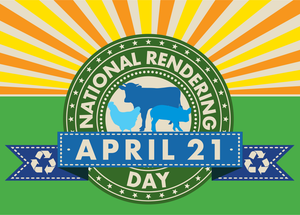A Ebola vaccine from specially engineered cows could help researchers develop large quantities of anti-Ebola serum to protect people against filoviruses.
August 10, 2014

By many estimates, an Ebola vaccine could be available for people as early as next year, but will it be the right one? There are a number of vaccines in development and each is in a race to prove that it is most effective, safe and that it will protect the largest number of people.
One promising Ebola vaccine, based on a human rabies virus vaccine, was developed by Thomas Jefferson University in Philadelphia, Pa., in collaboration with the National Institutes of Health (NIH). This novel vaccine could not only help reign in the current epidemic in West Africa, but could be easily expanded and used if another filovirus strain started to spread.
The researchers also plan to develop the vaccine into the type of antibody serum therapy used in the first U.S. recipients in a platform that could deliver at least 2,000 doses of potentially life-saving serum per month, an announcement said.
"Vaccines are the best way to completely eradicate an epidemic threat like Ebola," said Dr. Matthias Schnell, director of the Jefferson Vaccine Center and professor of microbiology and immunology at Thomas Jefferson University. However, "for those patients who already have the disease, antibody-based therapies could be the best treatment — it's a way to give the body's own defenses time to ramp up."
Schnell and his team have developed a vaccine that activates the immune system to produce large amounts of antibodies against three virus strains, in order to most effectively eradicate the threat of hemorrhagic fever. It includes the Zaire strain of Ebola virus that is currently spreading across West Africa, as well as the Sudan strain, and the Marburg virus, a virus in the same family as Ebola that causes a very similar disease.
Vaccines, however, may only prevent the spread of the disease, rather than help those who have already contracted the infection because of how quickly the disease progresses. In order to address this issue, Schnell is working with another company with a novel method of producing antibodies en masse.
Although they do not confer the long-lasting immunity of a vaccine, antibodies attach to virus particles and help chaperone them out of the blood before they can infect more cells, Schnell explained.
"It's like a sponge that mops up a lot of the virus in the body," Schnell said. "It gives the immune system the time it needs to build a response to the virus that has already infected cells," but to be safe and to have the ability to give multiple doses if needed, those antibodies need to "look human" to the immune system.
The experimental therapy that humanitarian aid workers Kent Brantly and Nancy Writebol received was based on a purified monoclonal antibodies from mice genetically engineered to produce human-like antibodies against the Ebola virus. However, the company that produced the serum had a very limited quantity available.
SAB Biotherapeutics is a company in South Dakota with a small herd of cattle that can produce human-like antibodies. Together with SAB, Schnell is applying for a grant that would allow the team to vaccinate the cows with his vaccine in order to produce large quantities of antibodies specific for the three viral strains. The cows would have their blood plasma harvested every two weeks to produce 30-60 liters of serum every month from one animal — the equivalent of 2,000 doses. The vaccinated cows would produce polyvalent antibodies — antibodies that can recognize many different viral components — rather than the monoclonal antibodies administered to Brantly and Writebol.
Polyvalent antibodies are more likely to remain effective if the virus mutates.
"If money were no object, we could have the first batch of serum ready for human testing in four to six months," Schnell said.
You May Also Like
.png?width=300&auto=webp&quality=80&disable=upscale)
.png?width=300&auto=webp&quality=80&disable=upscale)

